I had always loved experimenting with new practices on my farmstead. However, a brief but eye-opening encounter has made me realize that what seems exciting at first can sometimes lead to serious problems later.
One such experience I witnessed was regarding a DIY renewable energy resources. I haven’t fallen into this ‘trap’ myself. But, from what I’ve observed around me, I’m confident I won’t be attempting it ever. And there are many reasons to justify this decision.
Today, I want to share a real-life story about my neighbor’s bold experiment with DIY renewable energy resources on his homestead. While the concept sounds fascinating, the difficulties beneath the surface might make you reconsider before embarking on such a path. Let’s begin!
Discovery of My Neighbor’s Ambitious Project
So, my neighbor Samson had the idea of transforming his homestead into a sustainable space by installing DIY solar panels and turbines. He wasn’t just excited about saving money on his energy bills but also eager to help the environment.
The most important aspect of this project was that he didn’t have any experience in the technical field.
To begin his adventure, he bought a DIY solar panel kit and a small wind turbine. However, the process wasn’t as easy as it seemed. At every stage, he faced challenges that were quite tiring to overcome.
The first and foremost difficulty that he encountered was the installation of those renewable resources. Each entity required careful implication to work, so, obviously, Samson had to become an engineer for a while. But the hurdles didn’t stop there!
Cloudy days made energy production uncertain. And when things broke down, which happened a lot, Samson had to become a makeshift electrician to sort it all out.
All these difficulties came together and gave my neighbor a big reality check. His once-exciting project of making his own energy was turned into a cause of worry and annoyance.
Related: Are You A DIY-er?
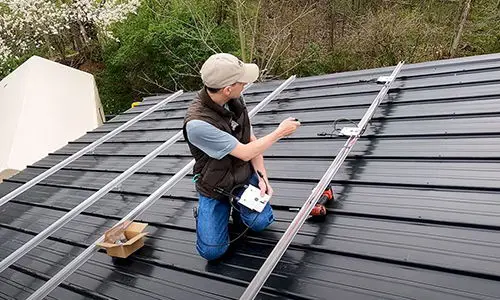
DIY Renewable Energy: A Life-Time Commitment
Opting for DIY renewable energy resources isn’t just a walk in the park. It’s more like trekking up a steep mountain. Just like any venture, this also requires a lot of research, planning, and obviously, dedication.
My neighbor did a lot of research before he could even start. He spent hours searching DIY-related things online, reading articles, and checking forums.
It felt like studying hard for a test, but the exam was all about building a small power plant in his yard this time. When it came to planning the installation of the solar panel, Samson had to calculate the optimal angles, consider the sun’s trajectory, and how the wind danced around his homestead.
In his pursuit of a greener future, he realized that the commitment required for this project was endless. For example, he had to monitor energy production constantly, adjusting and tweaking to maximize output.

Financial Dilemmas Relating DIY Renewable Energy
If I decide to use DIY renewable energy sources, my main goal would be to reduce my energy expenses. However, Samson’s experience taught me that counting on this DIY project doesn’t always lead to cost reduction.
One thing that is evident about renewable resources is that they do promise future savings, but at the same time, demand a significant initial investment. And the crazy thing is that the budget overruns every time!
You might believe a particular budget is sufficient to establish the sustainable setup you’ve been dreaming of. But then, tomorrow, you will face another substantial maintenance bill, becoming a burden on your bank account.
Samson’s financial challenges were a clear reminder that renewable energy resources are more than just installing panels and expecting savings. It’s a significant financial commitment that requires careful attention, patience, and a solid bank account.
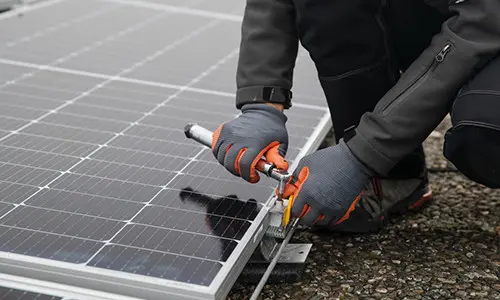
DIY Renewable Energy Resources: Technical Trials and Challenges
Even if your bank account is in good shape, setting up renewable energy resources is not as simple as a piece of cake. More importantly, it demands a specific set of technical skills that not everyone may have.
My beloved neighbor Samson initially had zero ideas about technical stuff like wiring and angles. However, as he was determined, he then educated himself about various tech trials relating to the whole setup. Additionally, the project also required frequent maintenance.
For example, regarding the solar panels, Samson had to clean the plates regularly. Moreover, he also had to inspect the wirings of the turbines to have them work efficiently.
Even then, the troubleshooting won’t come to an end. Random breakdowns would arise day after another out of nowhere, just like the surprise guests who never call before coming to your home.
Samson’s mini power plant project was a living example that technical challenges could make your once-promising DIY renewable energy project a headache. I could never imagine switching to an engineer while feeding chickens on my farmstead just because a turbine is broken!
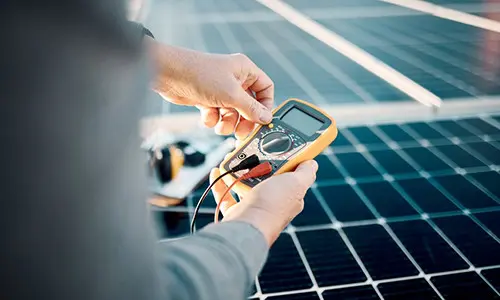
Managing Time and Effort
One of the most important reasons I would never go for a DIY renewable energy system on my homestead is that I don’t want to sacrifice my precious time.
Let’s be honest; taking care of a farmstead demands a considerable amount of effort. It involves harvesting crops, feeding animals, sowing seeds, and many other responsibilities. Adding a DIY renewable energy resource into this mix would be juggling between two different roles, which sounds interesting but is chaos in itself.
I remember how Samson spent his days on the farm, multitasking while caring for the land and keeping the renewable energy systems in good shape. Indeed, the charm of green energy was tempting, but it came with a price tag – his time and effort.
Related: DIY Cheap & Portable Washing Machine
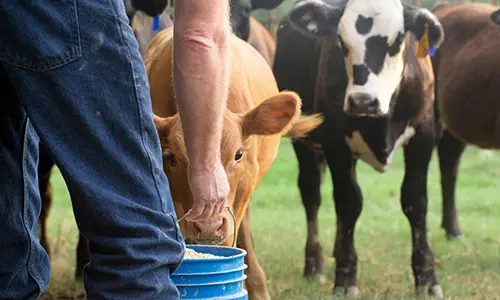
Reflections and Personal Choices
Now, don’t get me wrong fellow homesteaders, but I would never have DIY renewable energy resources on my farm. I mean, there are a lot of benefits associated with it, but the aftermath for me, personally, is a whole lot of marathon, which is never-ending.
I truly understand that reducing carbon footprint and helping mother nature is commendable. But as an avid homesteader, I acknowledge how keeping up a farm requires constant attention and care. And amidst this bustling world, I couldn’t think of passing through wires or troubleshooting a solar panel or turbines.
Samson’s journey of having DIY renewable energy resources on his farm was eye-opening for me. While promoting a greener environment is important, right now, I personally want to channel my energy toward nurturing my homestead and the livestock I own. This is too complicated for my skills.
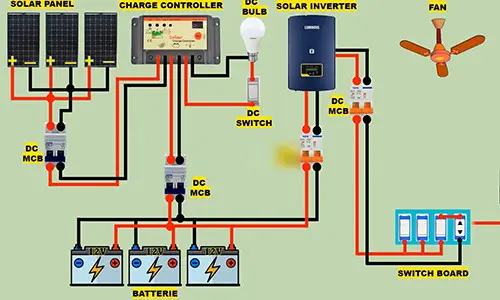
Conclusion
To sum it up, the impact of DIY renewable energy resources on our earth is significant.
However, this path is filled with a number of challenges ranging from technical hurdles and financial surprises to commitments relating to time and effort. Based on Samson’s experience and my affection for homesteading, I’ve decided not to engage in any DIY renewable energy projects.
So, are you brave enough to embark on a journey to make your homestead greener? Or are you going to tread a different path?
Your thoughts are most welcome!
You may also like:
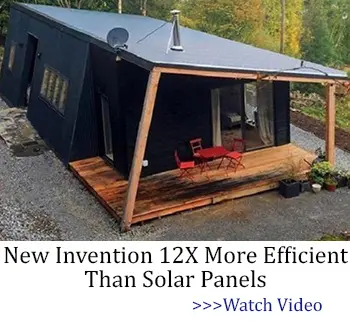 You Are Not Ready For Winter Until You Have These
You Are Not Ready For Winter Until You Have These
The Awesome DIY Device That Turns Air Into Fresh Water! (Video)
Best Dog Breeds For Homesteaders

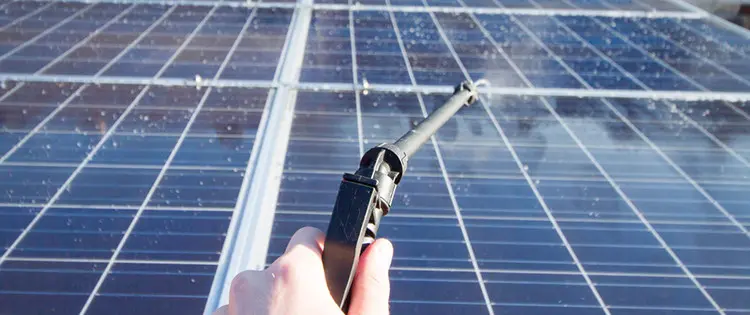










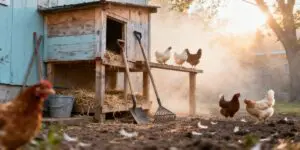


As an electrical engineer, I will admit that embarking upon something such as this on your own is where many people with no engineering, electrical or construction background will go wrong. It is imperative that you seek out a reputable contractor that will help you design and build this system for you. Many people want to do it themselves because they believe they’re saving money; when you cheap out, you lose out. One person’s failure and bad example should not serve as a discouragement. A properly built system will need little if any maintenance, and a properly designed system will have the necessary paneling as well as batteries for reserve power (in those instances of cloudy days). DO NOT go completely off-grid unless you have done the necessary work in assessing your energy usage; otherwise a grid-tie system will be your option until you’ve built it up enough to manage a 100% separation from the grid with no power capacity issues. Despite wind turbines being more efficient than solar, it is more unreliable and unsuitable for primary or reserve power, as it is more suitable for on-demand [at the moment] supplemental power. I will not discourage solar power, but it absolutely requires having someone who is professionally licensed/bonded to handle it as well as doing the proper research up front, because they really are low-maintenance and trouble-free if done right.
I agree, altho I’m a beginner doing an off the grid system. But my project is a scaled down experiment, and learning experience. I am remaining on the grid for now, but I’m not tying my system into it. I’m keeping it separate, and my modest goal is to run my detached garage/shop off if the panels and a 5 kwh battery. And maybe running an extension cord to my house to power some temporary devices like vacuum cleaners and space heaters or portable AC units, to knock my bill down a little.
My goal is not to save money, it is to be prepared for grid failure.